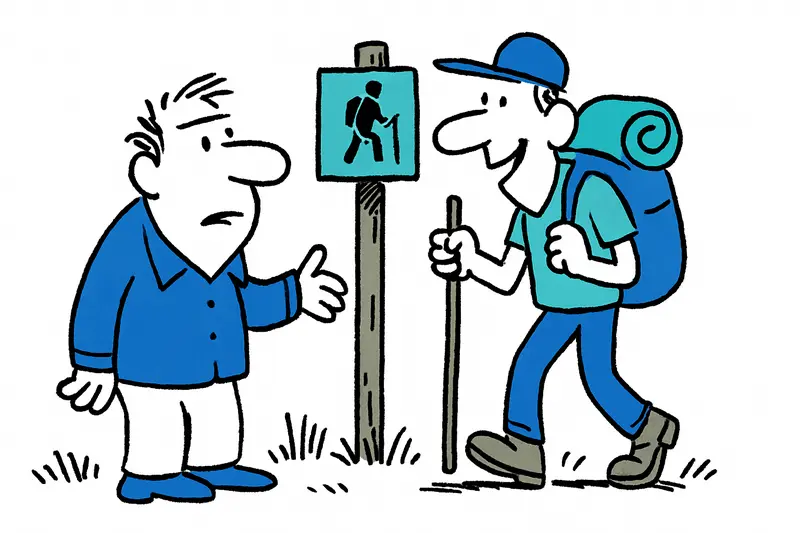
Supreme Court bolsters Madrid – Balearic Islands between duty and overload
The Supreme Court has rejected the Balearic Islands' emergency plea. The central question remains: How can islands like Mallorca provide solidarity without overburdening their social services?
Court gives Madrid a preliminary win – and the islands stand at a crossroads
The central question now drifting from Palma to the Paseo Marítimo is: How can solidarity be distributed fairly without letting local services collapse? Spain's Supreme Court on Sunday dismissed an urgent application from the Balearic government, provisionally favouring the central government's regulation. The decree that came into force on 26 August 2025 allocates reception capacities for unaccompanied minor migrants according to population size – for the Balearic Islands that equals 406 places. The fact that the judges did not see grounds for an immediate suspension has triggered a noticeable reaction in town halls and care homes. The provincial court has also been active on other fronts, for example Judges in Palma strengthen passenger rights — a win with open questions.
What is at stake
For staff in social services the decision is more than a legal footnote. They describe overcrowded homes, longer waits for medical checks and staff shortages – everyday realities that cannot simply be delegated away. In an area where daily life is shaped by the roar of motorbikes at the harbour, market vendors and the afternoon wind from the Serra de Tramuntana, every new relocation means extra strain on neighbourhoods and care structures.
The Supreme Court also criticised that a decision without prior hearing of the central government would not be appropriate. Madrid has five days to submit a written statement; only after that will the court make its final ruling on whether the decree remains provisionally in force or is suspended. Until then there is uncertainty – and planning difficulties for the island administration.
Why the debate is more than numbers
Public debate often focuses on distribution tables and legal responsibilities. Less noticed are the practical hurdles: age determination is complicated, medical examinations are not always immediately available, and many young people need trauma care and school support – not quick fixes. Staff also report cases in which the actual age cannot be clearly established, which significantly complicates care and resource planning.
Politically the island government has already taken further steps – including a complaint to the Constitutional Court. Mallorca sues Madrid: Who bears responsibility for unaccompanied minors? Madrid's central line, however, is clear: a solidarity-based distribution should prevent a few regions and cities from bearing the main burden. But solidarity by decree meets real limits: budget cuts in recent years, seasonal pressure from tourism and a tight labour market for social workers.
Aspects that are rarely on the radar
There are problems that rarely find space in the discussion, even though they are decisive: the psychological strain on caregivers, integration into local schools outside the main ports, language barriers and the legal accompaniment of the young people. The long-term costs for education, health care and aftercare are also too seldom calculated – it is not only about beds, but about perspectives.
Another point: when islands have to provide places at short notice, there is often a lack of flexibility to place these young people in a socially and pedagogically meaningful way. The result is makeshift solutions instead of integrative approaches.
Concrete steps that could help now
The legal dispute will continue. Until the final decision, pragmatic measures can help that bring short-term relief and are sensible in the longer term:
1. Mobile teams for age and health checks: Deploying specialists who can quickly carry out medical and forensic examinations on site reduces waiting times and creates clarity.
2. Temporary financial injections and staff reinforcement: Special state funds for social services on the islands, coupled with time-limited recruitment of specialists.
3. Coordination between regions: Binding transfer mechanisms that consider not only beds but also educational offers and school places.
4. Transparency and communication: Clear information lines for city administrations, NGOs and residents – many fears could be reduced with reliable information.
5. Community liaison and integration programmes: Housing within the community, mentoring with local clubs and school sponsorships can turn makeshift arrangements into real opportunities.
Looking ahead: court, politics and everyday life
The court file is open, the five-day deadline is running – and preparations are being made in the background in case further transfers become necessary. For people in Mallorca the situation remains tense: in municipal offices, shelters and aid organisations one hears the same demand: “We need clear rules and time to react.”
Between the Paseo and the harbour, while seagulls cry and buses rattle through the narrow streets, the debate does not feel abstract. It is part of everyday life – tangible, visible and urgent. Whether Madrid or Palma is ultimately right remains open. One thing is clear: without pragmatic agreements, the solidarity risks being shattered by reality.
Similar News

100 Kilometers through the Llevant: New GR 226 Long-Distance Trail Opened
The new East Mallorca long-distance trail GR 226 links five Llevant municipalities over 100.4 km. Low difficulty, nearly...

"A disaster" on board: What a drunk passenger means for the Balearic Islands
A heavily intoxicated passenger caused an aborted takeoff from Madrid to Ibiza and about two hours' delay. A reality che...

After mixed weeks: Calmer weather returns to Mallorca
After a period of rain and strong winds, Mallorca's weather is calming down. AEMET reports milder days with highs near 2...

Four Arrests After Series of Shoplifting Incidents in Palma – a Reality Check
The Policía Nacional arrested four men suspected of stealing goods from shops across Palma in nearly 80 incidents since ...

New safety system for trains in Mallorca – lots of technology, open questions
The Balearic government presents a new safety system for rail transport. Gaps remain between the announcement and everyd...
More to explore
Discover more interesting content

Experience Mallorca's Best Beaches and Coves with SUP and Snorkeling

Spanish Cooking Workshop in Mallorca
